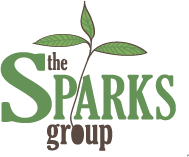Redefining: The Stage That Turns Everything on Its Head
The fifth stage of vertical development is where people move from conventional to post-conventional thinking, questioning just about everything.
Key Takeaways:
- The Redefining stage is all about self-questioning, upending tradition and beliefs, and finding solutions that work better for us and match our values
- Advantages of this stage include appreciating other perspectives, questioning systems that don’t work, and prioritizing inside-out thinking
- Limitations of the Redefining stage include making waves at work and experiencing a lot of hard feelings when everything we’ve known is upended
The seven stages of vertical development for leaders help us understand the different phases we move through to increase our capacity to lead. The framework allows us to discover where we reside within that structure. We learn how to mature and grow and what that change truly looks like. Studying vertical development helps us see all the advantages of broader thinking and questioning to deal with a more complex world.
The fifth stage of vertical development is the Redefining stage, characterized by turning our assumptions and beliefs on their head and questioning everything. It’s a crucial part of moving through the vertical development stages, increasing our capacity, and growing as individuals.
What is the Redefining stage?
The Redefining stage is categorized by self-questioning and upending our beliefs and ideas. The transition from Achiever to Redefining is when someone moves from the conventional stages of meaning-making (Conformer, Expert, and Achiever) to the post-conventional stages (Redefining, Strategist, and Alchemist).
When we move from conventional to post-conventional thinking, we move from outside-in to inside-out thinking. In the conventional stages, we take our cues on what we should be doing, and what success looks like from the outside. We’re not self-generating that yet. We’re looking to others – friends, family, bosses, colleagues, and the culture at large. We adopt those messages and expectations – explicit and implicit – as our own.
In post-conventional thinking, we’re looking inside first. We redefine and evaluate our beliefs to see if those ideas are working for us. Our own principles start to take more precedence over those of others. We can do the work to live our lives in ways that are more consistent with our own values.
Achievers like getting results and are outcome-focused. They can become burned out, which leads them to transition into the Redefining stage. They start to ask, “Why am I working so hard and running so fast? I’m never going to be done with this to-do list.” They realize that certain problems don’t have easy solutions. They’ll never stop working and pushing if they don’t change something.
They start asking “why” when something doesn’t feel good or right. They’re more critical of how things work and their role in organizations and systems. People in the Redefining stage are often frustrated with the way things are, which is why they start questioning. This leads to rejecting or reframing ideas and beliefs so they can make new ones.
In popular culture, people who are having a “midlife crisis” may be in the Redefining stage. They’re renegotiating their lives in both small and significant ways. They may leave the career path they’ve been on. They may leave a relationship. They may leave the “safe” life they’ve known for years. They figure out how to live their values more authentically.
We can also think of the Redefining stage as people reaching a kind of “rogue operator” headspace. They challenge the status quo and start to understand there could be a better way to do something rather than how it’s always been done.
People in the Redefining stage still have access to the stages that came before. They understand how critical societal values are in those stages. They become afraid of falling back into those previous ways of being.
This stage is hard work. It can take a very long time to get established in this stage, often three to five years. And not everyone gets here on their journey. Only about 20% of adults cross over from the conventional to post-conventional stages. When we look at things from a leadership context, we see that both leaders and organizations benefit from making this jump into the later stages.
Advantages of the Redefining stage
In the Redefining space, people start to question assumptions and appreciate other perspectives. They’re less threatened by ideas that don’t align with their own. They begin to believe that all perspectives are equal. Everyone has value.
They’re not driven by coming up with a solution and are more comfortable with questions. They recognize that some perspectives have inherent value on their own, even if they don’t solve a problem. They’re more tolerant of not only themselves but of other people. They exhibit less judgment and more patience. They have more capacity to appreciate complexity.
In this stage, people also come to recognize that our inner lives are just as relevant and meaningful as what’s happening on the outside. They see that values can be both individualistic and pluralistic. They recognize their own values and those they want to see reflected in the world.
Redefining helps people realize there are multiple nested systems, especially at work, from their role to the team, to the department, to the company, to the industry, and finally to society as a whole.
Being is more important than acting and doing in this stage. People want to cultivate space for more thinking and reflection. Other ways of knowing are coming online here, including emotions, the body, spirituality, and intuition. These ways of knowing are acknowledged as just as essential as rational thinking and doing.
Limitations of the Redefining stage
When professionals reach this fifth stage, it can potentially cause problems at work. Those still in the conventional stages will push back when someone starts to question and change the rules of the game. At the conventional stages, we are more apt to accept the rules of the game and want to play by them. This disconnect can create friction and discomfort.
Transitioning into and being in this stage can be very uncomfortable, even difficult. Beliefs are crumbling. We’re looking around, realizing the magnitude of society’s assumptions as well as our own, and how those may not be working for us. It can create a sense of isolation from people in the earlier stages. It can be a fraught, emotional stage for people. They may feel misunderstood and that they don’t fit in anymore.
Pursue vertical development with The Sparks Group
Vertical development encourages people to do the work through this transition and keep asking questions, even (and especially) if they cause disruptions. The Redefining phase is crucial to expanding our capacity to think and to lead. It helps us connect with other people’s perspectives and how we genuinely feel about things rather than depending on assumptions and traditions.
The Sparks Group focuses on coaching practices that help people understand their place in the vertical development framework. We show people how expanding their mindsets allows them to deal with more complicated industries, teams, responsibilities, and societies.
Get in touch with The Sparks Group today to schedule a free 30-minute discovery call.

